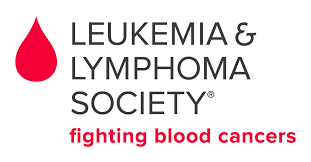Non-Hodgkin Lymphoma is a type of cancer that develops within the lymph nodes, lymphatic tissues, bone marrow or blood. NHL is a group of blood cancers and includes both indolent (slow-growing) and aggressive (fast-growing) subtypes, with more than 60 subtypes total. Your subtype will determine the best treatment plan for you.
How Does NHL Develop?
NHL generally begins when an abnormal change occurs in a white blood cell located in a lymph node or in lymphoid tissue. This type of cell is called a lymphocyte. NHL can emerge within one of three primary types of lymphocyte:
- B lymphocytes (B cells), which generate antibodies to help fight infections
- T lymphocytes (T cells), which have many functions, one of which is assisting B lymphocytes to produce antibodies
- Natural killer (NK) cells, which fight virus-infected cells and/or tumor cells
Approximately 85 percent of NHL cases originate in the B cells. Your doctor will create your treatment plan according to the type of lymphocyte in which your NHL originated.
The abnormal lymphocyte grows exponentially and produces more abnormal cells. These abnormal lymphocytes (lymphoma cells) accumulate to create tumors. If NHL goes untreated, the abnormal lymphocytes will crowd out normal white blood cells, blocking the immune system from protecting itself from infection. Primary extranodal lymphoma occurs when NHL spreads to other parts of the body that have lymphoid tissue, such as the spleen, bone marrow, or intestines.
Signs and Symptoms
The most common early sign of Non-Hodgkin Lymphoma (NHL) is painless enlargement of one or more lymph nodes in the neck, armpit, or groin. Most people with NHL have swollen lymph nodes in the upper body, namely in the neck or upper chest areas. Sometimes you can feel the swollen lymph node in the armpit or groin.
Additional signs and symptoms of NHL include:
- Fever
- Drenching sweats, especially night sweats
- Tiredness and lack of energy
- Decreased appetite
- Unexplained weight loss
If NHL originates in a bone, lung, the digestive (gastrointestinal) tract or the skin, rather than in a lymph node, symptoms may include:
- Rashes
- Bone pain
- Cough
- Chest pain
- Stomach pain
- Lumps under the skin
Some NHL symptoms are associated with other minor illnesses. Swollen lymph nodes can result from inflammation and are not necessarily a sign of cancer. Sometimes you may not experience symptoms. In this case, your doctor may first notice signs, such as swollen lymph nodes, during a routine checkup.
To learn more, visit The Leukemia and Lymphoma Society.
 Content provided by:
Content provided by: